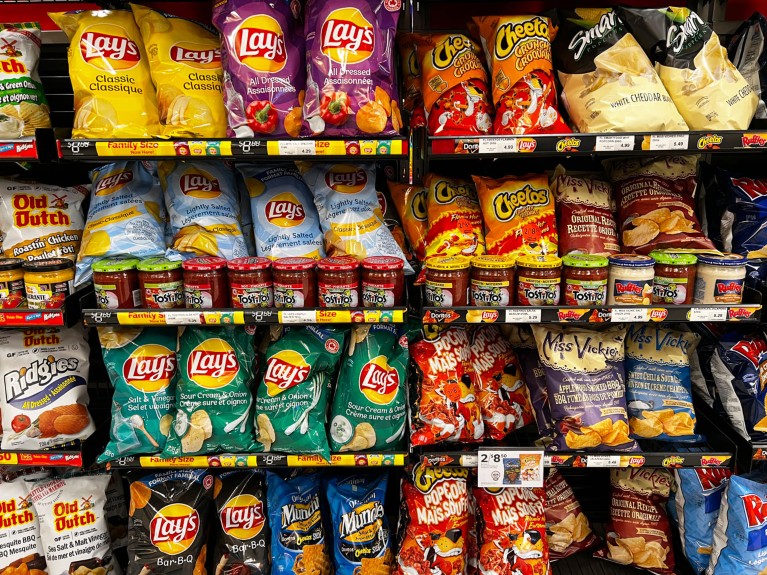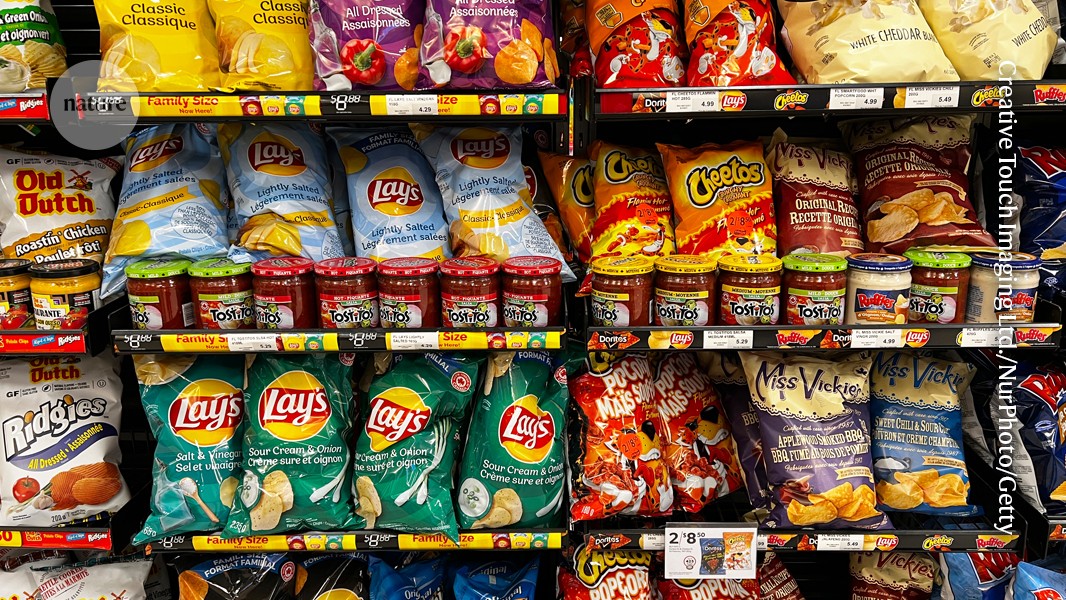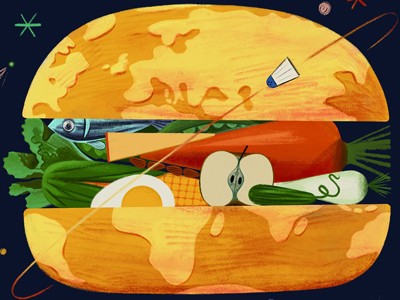
Study participants were given customized snack packs of their favourite ultra-processed foods but still struggled to consume the requisite 1,500 extra calories per day. Credit: Creative Touch Imaging Ltd./NurPhoto/Getty
Five days of indulging in chocolate bars, crisps and other junk foods can lead to lingering changes in brain activity, a study shows1. The resulting brain patterns are similar to those seen in people who have obesity.
A junk-food splurge shifted brain patterns in healthy young men despite their body weight and composition remaining unchanged, according to the study, published 21 February in Nature Metabolism.
“I didn’t expect the effect to be so clear in a healthy population,” says neuroscientist Stephanie Kullmann at the University of Tübingen in Germany, who led the study.
But another scientist says that there are limitations to the study, which relied on a nasal spray to deliver the digestive hormone insulin. “The authors give very large doses of insulin,” says physiologist Christoph Buettner, “four to five times the amount that a human releases into the bloodstream over 24 hours.” Buettner, at Rutgers Robert Wood Johnson Medical School in New Brunswick, New Jersey, was not involved in the study. Kullmann responds that not all of the inhaled insulin reached the brain and that more study is needed to pinpoint how much does.
Chocolate and chips
After a bite of food, the pancreas releases insulin to aid metabolism. Some of that insulin enters the brain, where it works to dampen appetite. But the brain’s response to the hormone is weakened in some people with obesity2. This ‘brain insulin resistance’ affects how the body processes food.
To learn more about the effects of insulin in the brain, Kullmann and her colleagues recruited 29 healthy male volunteers (Kullmann has a forthcoming study in women). Eighteen went on a high-calorie diet for five days. A nutritionist made customized 1,500-calorie packs of high-fat, high-sugar snacks for each participant to eat on each of the five days – but the men succeeded in increasing their caloric intake by an average of only 1,200 calories per day. “At the beginning, they were kind of excited,” says Kullmann, but by day 4, eating the extra processed food was a slog. Control participants ate their normal diet during the same period.
What humanity should eat to stay healthy and save the planet



